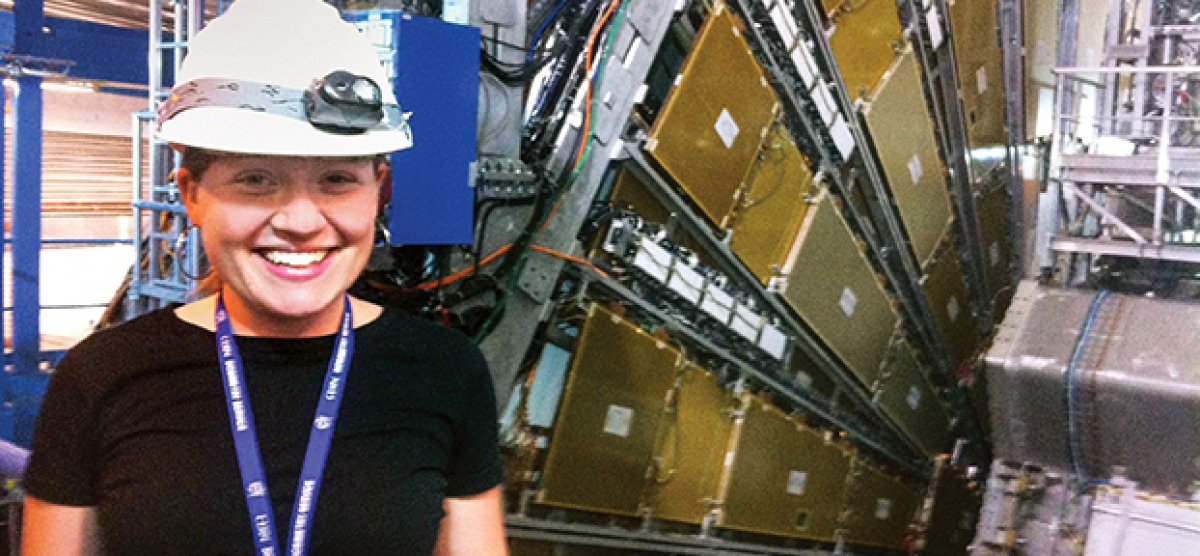
The Big Bang Theory
Leigh Schaefer ’13 is now working at CERN’s Large Hadron Collider.
“We’re attempting to use the smallest known pieces of the universe to answer some of its biggest questions—at least those questions that can be answered with science.”
“For as long as I can remember, I was always interested in trying to figure out how things worked, both man-made tools and natural phenomena, and also in math,” says Leigh Schaefer ’13.
Today Schaefer is a Ph.D. student at the University of Pennsylvania working at CERN, a multinational research center near Geneva, Switzerland. CERN studies the fundamental structure of the universe by accelerating particles at almost the speed of light and then colliding them at very high energies. Perhaps the best-known discovery at CERN is the Higgs boson, or so-called “God particle,” which scientists describe as a building block of the universe.
“We’re attempting to use the smallest known pieces of the universe to answer some of its biggest questions—at least those questions that can be answered with science,” Schaefer says. “Our ultimate goal is understanding the state of the universe at the big bang and how it evolved into what we see today.”
Schaefer is part of a group from Penn working on the ATLAS experiment at CERN’s Large Hadron Collider. The LHC is a massive underground particle accelerator. ATLAS measures its data.
Schaefer is the software coordinator for one of the subdetectors that make up the ATLAS detector. “Most of my day-to-day is spent either meeting with collaborators or writing code to improve” the subdetector’s performance. She also is involved in an analysis searching for another particle that has been theorized but not yet measured.
Schaefer didn’t consider a career in physics until she took a course her freshman year at Bryn Mawr. “Being at Bryn Mawr, surrounded by brilliant, confident women and faculty who were nothing but supportive, instilled in me the confidence to think that I could pursue a career in a traditionally male-dominated field,” she says.
“I haven’t experienced explicit condescension or hostility because I’m a woman,” Schaefer adds. “[But] I think as a society we can do more to encourage girls to study math and science, and then the demographics of STEM (science, technology, engineering, math) will consequently change.”
In Collaboration
The ATLAS experiment, on which Schaefer has been working for nthree years, is one of seven at the LHC being run by scientists collaborating from institutes around the world.
The Truth is Out There
Perhaps the best-known discovery at CERN is the Higgs boson, or so-called “God particle,” which scientists describe as a building block of the universe.
It's Astronomique
A physics major at Bryn Mawr, Schaefer had a double minor in astronomy and French.
Published on: 05/10/2017
